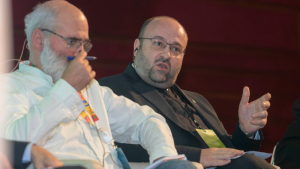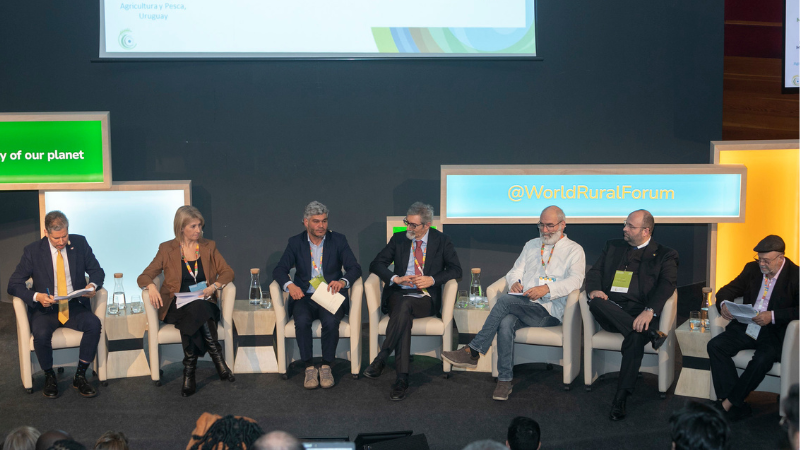From March 19 to 21, the World Farmers’ Organisation (WFO), represented by our Secretary General, Dr Andrea Porro, and our Advocacy, Policy, and Partnership Lead, Ms Luisa Volpe, participated in the VIII Global Conference on Family Farming “Sustainability of Our Planet” organized by the World Rural Forum (WRF) in Vitoria-Gasteiz, Basque Country, Spain.
As 2024 is an important year for family farming, marking the halfway point of the United Nations Decade of Family Farming 2019-2028 (UNDFF), the conference provided an opportunity to reflect on the achievements made so far, analyse the challenges facing family farming, and identify priority actions to scale up the implementation and impact of UNDFF.
On the first day, March 19, the WFO Secretary General addressed the roundtable “Assessment of the First 5 Years of the United Nations Decade of Family Farming Implementation: Achievements and Challenges“.
Moderated by Mr Mario Arvelo, President of the International Steering Committee of the UN Decade of Family Farming 2019-2028, the event also featured participation from the Ministry of Livestock, Agriculture and Fisheries of Uruguay, Food and Agriculture Organization (FAO), International Fund for Agricultural Development (IFAD), La Via Campesina (LVC), and the Confederation of Family Producers’ Organizations of Greater Mercosur (COPROFAM)
During his intervention, the WFO Secretary General highlighted several key points. He emphasized the UNDFF multi-stakeholder approach in which family farmers cooperate with Governments and two of the most important UN Organizations, IFAD and FAO, in farmer-oriented policy-making that supports family farmers and all family members, particularly women and youth.

Dr Porro also highlighted the UNDFF multiple agenda promoting family farmers’ needs and challenges at the global level and the connection and collaboration between farmers’ organizations and governments at the national level. “Having three global farmers’ organisations – WFO, LV, and WRF – together in the steering committee is an added value to ensure that the entire diversity of the family farming sector is represented,” the WFO Secretary General noted. He further emphasized that farmers’ organisations play a huge role in this multi-stakeholder collaboration between farmers, Governments and International Organisations.
However, WFO Secretary General pointed out two significant challenges: granting farmers’ organisations access to decision-making tables where critical decisions are made for them or on their behalf and ensuring that youth and women are duly involved in the decision-making process. To address these challenges, it is crucial to enhance farmers’ organisations at all levels through financial means, training, tools, and capacity-building programs to enable them to represent farmers’ voices effectively.
The conference paved the way for the UNDFF Mid-Term Forum in Rome during the week of the World Food Forum next October.
